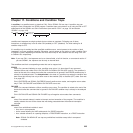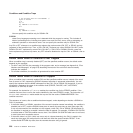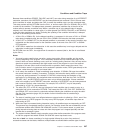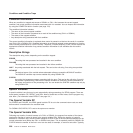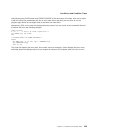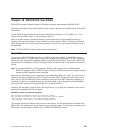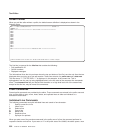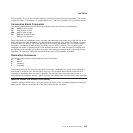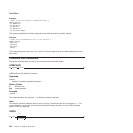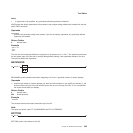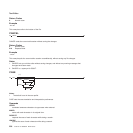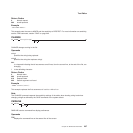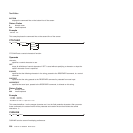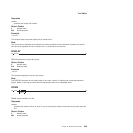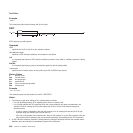
line just below it for input. You can also append a number to the end of the prefix command. This acts as
a replication factor. If the number “5” is appended to the “I”, five lines are opened for input instead of one.
Consecutive Block Commands
The following commands work with consecutive blocks of lines and consist of two characters:
DD Delete a block of lines
CC Copy a block of lines
MM Move a block of lines
RR Replicate a block of lines
"" Synonym for replicate
Block commands are processed in pairs. You place one command in the prefix area of the first line of the
block and place the same command in the prefix area of the last line of the block. For example, to delete
a block of lines, you place a “DD” in the prefix area of line 00001 and another “DD” in the prefix area of
line 00005. This deletes all lines between line 00001 and line 00005, inclusive. The only block prefix
command that allows a replication factor is the replicate command. So, when you specify a number with
the replicate block command you need to know how many times you want the block (not individual lines)
replicated. The replication factor must be specified with the first RR replication command.
Destination Commands
The following commands are called destination prefix commands:
A After
B Before
F Following
P Preceding
These commands give the move and copy prefix commands a destination for a block of text. When you
enter these in the prefix area, the text from a copy or a move is placed either before or after that line
according to what destination command is specified. The replicate prefix command does not use a
destination prefix command. Instead, it places its output immediately after the block that is to be replicated.
Macros Under the REXX/CICS Editor
The editor supports REXX macros, giving the macros the ability to alter the editor settings and display the
editor screens. Macros can process all of the editor command line commands.
Text Editor
Chapter 18. REXX/CICS Text Editor 233



